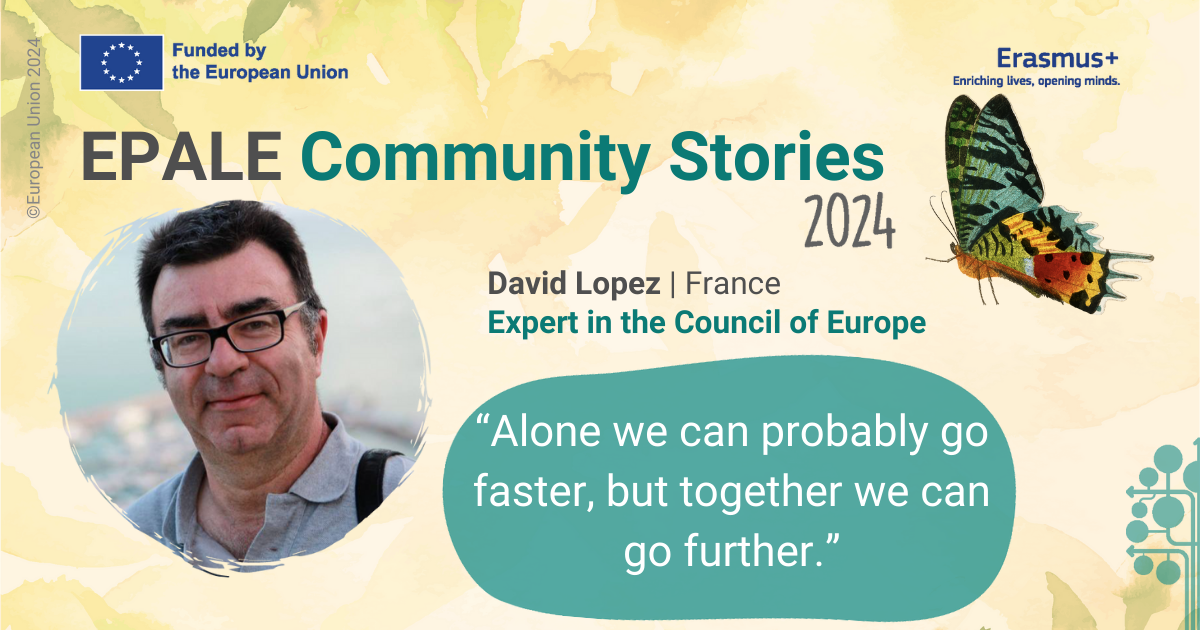David Lopez: Top-down learning is unsatisfactory

Short bio
I have been a teacher, youth and social worker and community leader for over 40 years. I have an academic background in further education, socio-cultural animation and social work. I have also trained as an administrator of European cultural projects. I've been involved in various European structures such as EAEA, Lifelong Learning Platform, Volonteurope, European Civic Forum. I represent the Lifelong Learning Platform as an expert in the Council of Europe.
My story of Empowerment
There isn't one event, one educational or training activity that I can identify as having contributed to my well-being or fulfilment. I think it's more a long process, made up of encounters and moments when I've been able to reflect on the meaning of my education and training missions. I've always been interested in educating others, convinced that to educate others is also to educate oneself. But we have to get away from a vertical conception of education. As a teacher, I quickly realised that top-down learning is unsatisfactory not only for the learner but also for the teacher.
A few light bulbs:
- In a group of trainers where I'm just starting out, when the group trusts me to supervise a group of trainees on my own, it's an element of self-confidence and therefore self-fulfilment.
- When I am asked to supervise a group of foreign migrants, even though we don't speak the same language and my English is not very good, and the group feels that they have made progress, it is an element of confidence in my ability to manage difficulties and find appropriate solutions.
- When educators from several countries have to agree on a manifesto that outlines our choices for adult education over the next 10 years, it's a big responsibility that I take very, very seriously.
- When I work with colleagues from sub-Saharan Africa and they do me the honour of asking me to lead a working group on school wastage and the link between formal and non-formal education, with the involvement of families, I'm also aware that I have a far greater responsibility than I ever imagined. These four brief examples are milestones in my career as an educator, alternating between action in the field, advocacy, and individual and collective responsibility. Adult education can contribute to social development and a more just and inclusive society, subject to a few conditions that are difficult to describe:
- The individual and the group are two of the fundamental elements.
- We must first trust people, then place them in situations of challenge and improvement. Not the liberal challenge of personal success, but the challenge of building together, or at least for the common good.
- Working methods must be participative, allowing time for reflection and action, for building together.
Throughout my career, and even now, I've had the good fortune to combine moments of decision-making in supranational structures, leading European groups and concrete training actions with different audiences in France and other countries.
One of the keys is to see ourselves as part of a group, a collective, and to remember that alone we can do absolutely nothing.
Alone we can probably go faster, but together we can go further. Together, because I am helping others to act on themselves and on the social solutions to be found, I am also acting on myself and my personal equilibrium.





